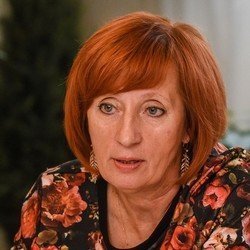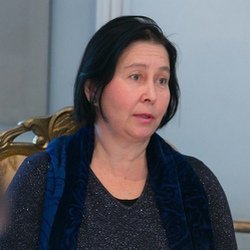One in four businesses don’t open in Tatarstan after lockdown
Experts think this isn’t the end, and in the case of new restrictions up to half of players in some sectors will leave the market
Trying to recover from the turbulence in the last months, small and medium businesses in Tatarstan are starting to count losses. After the three-month lockdown due to the coronavirus, 25% of SMEs didn’t open in the republic, Realnoe Vremay was told by Evotor IT company specialised in the production of online cash registers and owns the biggest operator of fiscal data Plaftorma OFD. Other market players confirmed it. According to experts, up to 30% of companies closed in some segments.
One in four businesses closed in Tatarstan
After the cancellation of restrictions on businesses’ operation during the coronavirus pandemic in Russia, about 20% of companies didn’t manage to open. Some closed forever, some are saving money to resume their activity because costs have increased many times because of new COVID requirements of Russia’s consumer rights protection watchdog Rospotrebnadzor.
“According to Evotor IT company, about 25% small and medium businesses have stopped running since 17 July after easing the regime in the Republic of Tatarstan. Moreover, 70% SMEs in Tatarstan were in quarantine in early April,” said Yulia Vetchinkina, a specialist at Evotor, which has produced over 650,000 online cash registers and provides businesses with over 500 services.
Others specialists also confirm the sad statistics as well as market players from the most affected sectors themselves, for instance, such as restaurants and hotels. So head of the Association of Travel Agencies of Tatarstan and Director General of Persona Grata travel agency Ramil Miftakhov thinks that about 30% of travel agencies of the republic stopped operating with the announcement of easing.

The situation in restaurants is the same. As Realnoe Vremya was told by Executive Director of the Association of Restaurateurs and Hoteliers of Kazan and Tatarstan Galina Sharafutdinov about 30% of public catering establishments had closed:
“They highly likely won’t open. Some establishments closed immediately, in April when they understood they wouldn’t withstand this economic blockade, others did later. Some didn’t manage to reopen when they calculated how much money they had to invest to order products, pay the staff and understood that such a financial model wouldn’t be viable. I can say for sure that most restaurants close because their business showed their vulnerability during such crises.”
“The season has failed”
Those players who opened after all are working without profitability. The current hotel occupancy rate in Tatarstan is 30% of average numbers for individuals and doesn’t exceed 10% of the load in group tours, Ramil Miftakhov told our newspaper.
As Galina Sharafutdinov said, cafes and restaurants that opened are having huge difficulties because only 200 out of 2,500 businesses in Kazan have summer terraces (the only permitted format of operation till mid-July).

Large and medium hotels in Kazan didn’t stop their operation but are experiencing an uneasy situation because “group tours have completely died in the last months”, President of the Association of Hotels of Kazan and Tatarstan, Manager of Relit hotels (Kazan) Gulnara Safina continues the talk.
But as she said, one of the hotels made a well-thought-out decision that now it isn’t profitable to work and it is necessary to suspend the activity. According to her, the highest occupancy rate in hotels in hotels in the city were 15% in June, 30-35% in July. Bookings in August forecast the same level.
“Tourists have begun to arrive here only now. This weekend inspires hope, almost all rooms in many hotels are occupied,” noted the head of the association.
As Gulnara Safina said, the occupancy rate was always 100% during these days in summer. Moreover, the business segment accounts for 30% of the occupancy rate on average, this segment is always present in Kazan as the centre for business activity. However, the expert notes that it is a small share of the guests.
President of the Association of Hostels of Kazan Ilya Tsykunov told our newspaper that Kazan has over 160 hostels, while Tatarstan does almost 250. The interlocutor noted that nobody among 30 members of the association stopped operating, but the republic has establishments that closed and are up for sale. Tsykynov thinks that it is a small percentage, the pandemic accelerated this process a bit:

No banquets and conferences
Experts stress that public catering is gaining speed because of the current ban on indoor banquets.
“People are back to usual life and want holidays, somebody planned weddings and jubilees a long time ago, they ask us to host the celebrations. Unfortunately, we can host them on terraces, and with restrictions. For some formats, it is a loss of 100% of revenue. We are waiting for new concessions very much,” Galina Sharafutdinova stressed.
The head of the Association of Hotels also complains that now “the MICE segment (conferences and other business events) that provided with a serious income has got lost”.

She notes that hoteliers are ready to meet any requirements of Rospotrebnadzor, while now they can’t plan their business because people make a decision on a business trip or a holiday at the last moment. Safina supposes that existing positions can also be lost in such conditions.
“As for taxes, of course, we would like tax holiday till late 2020, not a postponement of obligations, because it will take the sector much time to recover. It is the money we will pay later will be a heavy burden for us,” thinks Galina Sharafutdinova.
But even in the best-case scenario, small and medium businesses will have to work hard to catch up with the pre-crisis situation,” Ilya Tsykunov thinks it will take at least a year.
“But if there are restrictions, at least 50% of companies can leave the market,” Ramil Miftakhov noted.

She thinks no matter what preferences an entrepreneur is given if he can’t sell a good, can’t receive an income that will cover his costs.
“We bump into purchasing power. According to statistics, it has been falling for years. People reduce costs and try to spend on the essentials: children’s education, food, treatment and medicine. 50% of the population significantly saves on the rest. And this poses a threat to the further activity of a series of sectors: entertainment, hotels, restaurants, luxury and even not fashionable but casual basics are also raising a question because of a lower quality of life,” the chairwoman of the committee thinks.